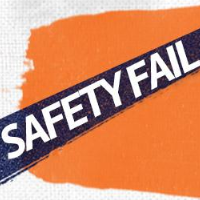3 State Facilities for Developmental Disabled Face Funding Loss after Patients Found in “Immediate Jeopardy”

Three state facilities caring for developmentally disabled patients, including those with mental retardation, cerebral palsy, epilepsy and autism, have been found out of compliance with federal standards for Medicaid and face loss of funding for programs affecting 430 people.
The California Department of Public Health informed the beleaguered Department of Developmental Disabilities (DDS), which operates five such board-and-care facilities, of the findings and sounded an optimistic note that the necessary improvements could be make in time, while citing its own findings of “deficient practices” and “chronic system failures.”
The Lantern, Fairview and Porterville developmental centers were each cited during Medicaid recertification surveys last year for failing to meet around half of the required Conditions of Participation (COPs) and having between one and four patients in “immediate jeopardy.” The deficiencies are in the Individuals with Intellectual Disabilities (ICF-IID) program administered by each center.
The decertification warning is the latest chapter in a saga of woe stretching back more than a decade. The California Attorney General’s office issued a report in 2002 which found the Office of Protective Services (OPS), a law enforcement division at the centers, was underfunded and did a lousy job. It recommended 28 changes that the State Auditor said were largely ignored as of July 2013.
By then, Ryan Gabrielson at the Center for Investigative Reporting had run a Pulitzer Prize-nominated series of stories detailing patient abuse and law enforcement negligence at the centers. He wrote about dozens of women who were sexually assaulted, a caregiver suspected of tasering a dozen patients and other incidents that were barely investigated by OPS. The series’ conclusion was that the department often failed to secure crime scenes and mishandled, or skipped, interviews with witnesses and suspects, which meant it had an “alarming inability to solve crimes.”
The auditor mostly concurred in its report. It found that DDS, which takes care of 1,480 patients at the five facilities, received 4,345 allegations of patient abuse over five years. After OPS got through with the cases, only 82 were deemed strong enough to send to prosecutors. Although multiple reasons were given for OPS lapses, the 43% vacancy rate among officers stood out.
After seven years as DDS director, Therese “Terri” Delgadillo announced in August that she was stepping down for health reasons at the end of last year.
The Public Health department, which has licensing functions that directly affect DDS, has come in for its own share of criticism over the centers. The auditor’s report said the department hasn’t performed licensing surveys “on time or at all” and hasn’t promptly completed investigations of incidents “it classifies as less serious.” But the auditor wasn’t sure exactly what the department had failed to do because it hadn’t provided a required report on the effectiveness of its enforcement practices.
–Ken Broder
To Learn More:
State Finds “Jeopardy” to Disabled at 3 Centers; Funds at Risk (by Emily Alpert Reyes, Los Angeles Times)
The California Department of Public Health Takes Enforcement Action against Three Developmental Centers (Press release)
State’s Developmental Services Director Announces Resignation from Beleaguered Agency (by Ken Broder, AllGov California)
11 Years Later, Disabled Patients Still at Risk in Underfunded Developmental Centers (by Ken Broder, AllGov California)
- Top Stories
- Controversies
- Where is the Money Going?
- California and the Nation
- Appointments and Resignations
- Unusual News
- Latest News
- California Forbids U.S. Immigration Agents from Pretending to be Police
- California Lawmakers Urged to Strip “Self-Dealing” Tax Board of Its Duties
- Big Oil’s Grip on California
- Santa Cruz Police See Homeland Security Betrayal in Use of Gang Roundup as Cover for Immigration Raid
- Oil Companies Face Deadline to Stop Polluting California Groundwater





